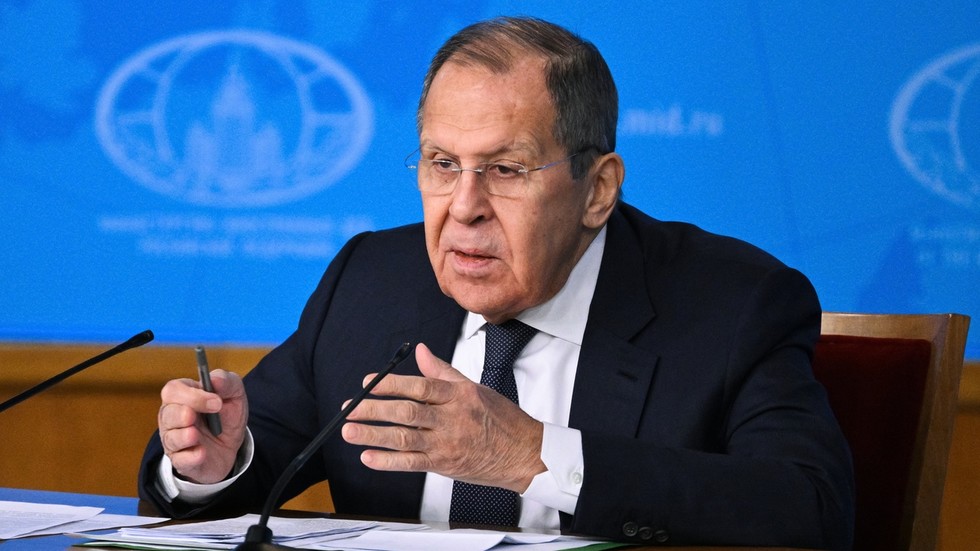Shifting Paradigms: Understanding Trump’s ‘America First’ Policy and Its Impact on the Post-WWII Order
In the arena of global politics, few concepts have reverberated as profoundly as the post-World War II order, characterized by multilateralism, global cooperation, and a commitment to shared values. However, with the advent of Donald Trump’s presidency and his ‘America First’ policy, we witness a significant challenge to this established framework. This bold approach not only reshapes U.S. foreign policy but also raises critical questions about the future of global cooperation and diplomacy.
The ‘America First’ Doctrine: A Synopsis
Trump’s ‘America First’ policy emerged as a cornerstone of his administration’s philosophy, prioritizing American interests above all else. This doctrine manifested in various ways, from trade negotiations to military alliances, fundamentally altering the U.S. approach to international relations.
- Trade Policies: Trump’s administration renegotiated key trade agreements, such as NAFTA, now replaced by the USMCA, and imposed tariffs on several countries, notably China. This protectionist stance aimed to bolster American manufacturing and reduce the trade deficit.
- Military Alliances: Trump’s skepticism towards NATO and calls for member nations to increase their defense spending signaled a shift from collective security toward a more transactional approach to alliances.
- Immigration Policies: The ‘America First’ mantra extended to stringent immigration policies, emphasizing national sovereignty and security over humanitarian considerations.
These policies collectively signal a departure from the collaborative spirit that characterized the post-WWII order, prompting both domestic and international responses.
Repercussions on Global Diplomacy
The ramifications of Trump’s ‘America First’ policy have been profound. For decades, the United States operated under a principle that prioritized international cooperation, often acting as a mediator in global conflicts and a leader in multilateral institutions. However, this new approach has introduced several challenges to global diplomacy:
1. Erosion of Multilateral Institutions
Organizations such as the United Nations and the World Trade Organization have long relied on U.S. leadership to function effectively. Trump’s administration exhibited a tendency to withdraw from or undermine these institutions, asserting that they no longer served American interests. This withdrawal can lead to a vacuum of leadership, leaving room for alternative powers to assert influence.
2. The Rise of Bilateralism
With a focus on bilateral agreements over multilateral ones, Trump’s policies have encouraged countries to negotiate one-on-one, potentially sidelining global issues that require collective action. This shift can lead to fragmented international relations, where global challenges like climate change and pandemics are addressed in isolation rather than through cooperative frameworks.
3. Increased Geopolitical Tensions
Trump’s confrontational stance towards countries like China and Iran has escalated tensions in international relations. Trade wars and military posturing can lead to a more polarized world where diplomacy takes a backseat to competition. The challenge now lies in managing these tensions without descending into open conflict.
The Future of Global Cooperation
As the world grapples with the implications of the ‘America First’ policy, the future of global cooperation remains uncertain. However, several pathways could emerge from this paradigm shift:
1. Redefining Alliances
Countries may need to reassess their alliances and partnerships in light of shifting U.S. policies. Nations traditionally aligned with the U.S. might seek to strengthen ties with other powers, such as the European Union or China, leading to a reconfiguration of global alliances.
2. Increased Regional Cooperation
As global leadership dynamics evolve, there may be a resurgence of regional cooperation. Countries could prioritize regional agreements to address shared challenges, such as security and economic development, thereby fostering a more localized approach to diplomacy.
3. Grassroots Globalism
In response to the challenges posed by nationalistic policies, grassroots movements advocating for global cooperation could gain momentum. Civil society organizations and individuals may push for collaborative frameworks to tackle pressing issues like climate change, human rights, and public health, irrespective of governmental policies.
Conclusion: Navigating New Waters
Trump’s ‘America First’ policy undoubtedly challenges the post-WWII international order, provoking a reevaluation of established diplomatic norms. As nations navigate this new landscape, the resilience of global cooperation will be tested. While the immediate future may seem uncertain, history has shown that adaptability and collaboration often triumph in the face of adversity. By fostering dialogue and understanding, countries can work towards a renewed commitment to cooperation, ensuring that the spirit of global unity endures, even amidst shifting paradigms.
As we stand at this crossroads, it is essential for global leaders and citizens alike to engage in constructive discourse, recognizing that the challenges of the 21st century—be it climate change, economic inequality, or global health—demand a cooperative approach. The path forward may be fraught with obstacles, but through mutual respect and collaboration, it is possible to build a more inclusive and resilient world order.
See more BBC Express News

